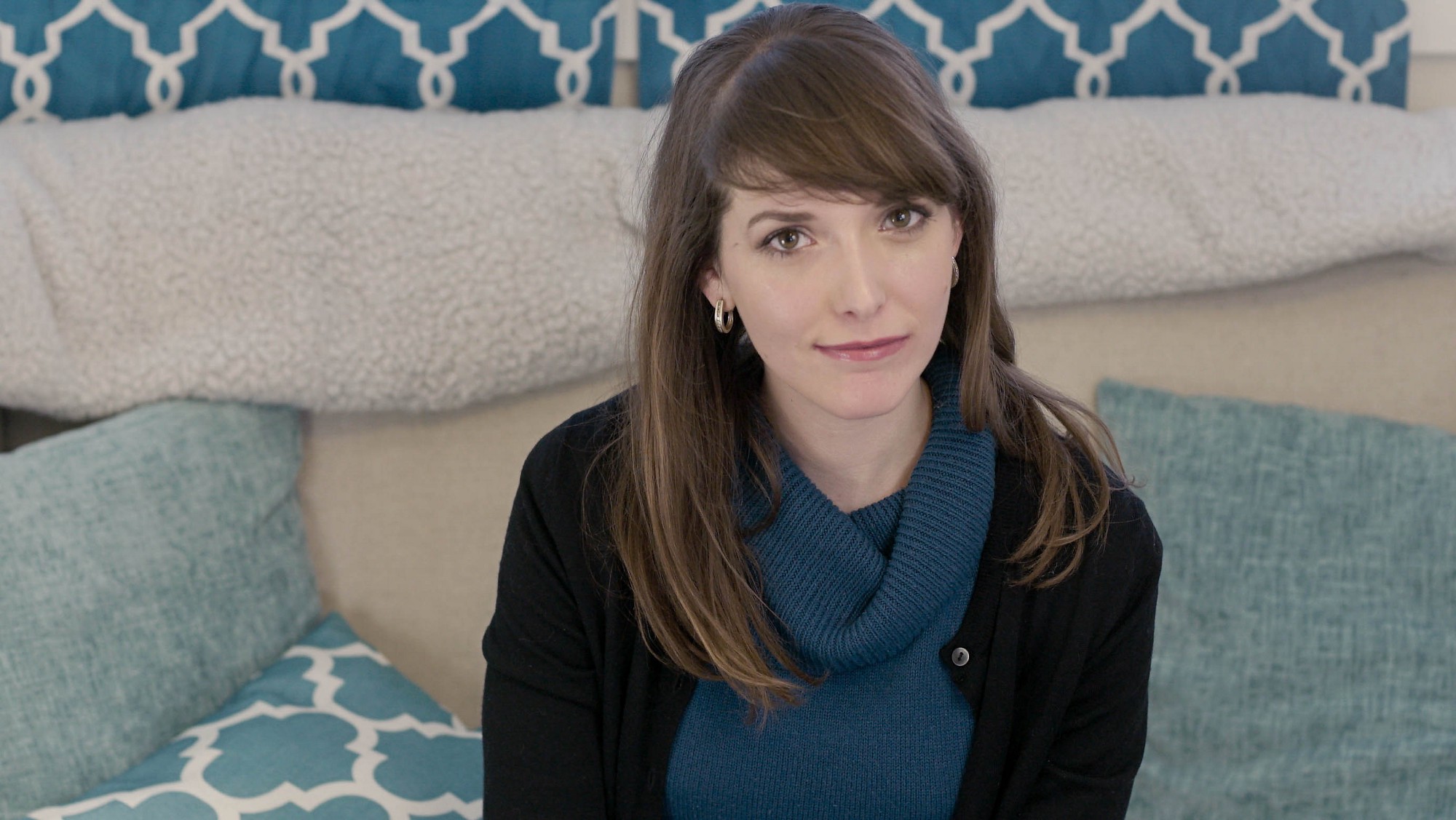As a part of my series about “Mental Health Champions” helping to normalize the focus on mental wellness, I had the pleasure to interview Loren N. Barnes, M.Ed., PLPC is a psychotherapist at Trinity Wellness, LLC, in St. Louis, MO. She is dedicated to educating her community about mental health, wellness, and the therapeutic process. Loren takes an in-depth, individualized approach to her therapeutic work. She particularly enjoys working with young adults and helping them navigate this important time in their lives. She is also interested in working with those struggling with anxiety, depression, relationship concerns, and spiritual or religious concerns. Loren is trauma-informed and oppression-informed in her approach. Visit her website for more information: http://therapybyloren.com
Thank you so much for joining us! Can you tell us the “backstory” about what brought you to this specific career path?
I grew up in a pretty dysfunctional household, and I think a common response to that is to become very psychologically curious. That was certainly true of me. I was trying to make sense of many of my own experiences and the experiences of those around me, so I started learning everything I could about the world and the people in it. I also had a love for story from a young age — I was always the kid with my nose in a book. These two things combine perfectly to make a therapist. As a therapist, I get to listen to people’s stories and be curious about them for a living. I’m curious about the stories I hear and the people telling them, and I try to piece the information I get together in a way that offers something new and healing to the client. It really is quite a privilege.
According to Mental Health America’s report,over 44 million Americans have a mental health condition. Yet there’s still a stigma about mental illness. Can you share a few reasons you think this is so?
Even if we know better, most of us still picked up messages starting from a young age that vulnerability is weak, and that there are emotions that are inherently “bad.” Many of us still believe, deep down, that we can’t ask for help or let people know when we’re hurting if we’re going to be accepted by others. It’s hard for us to overcome the stigma against those with mental health conditions because if we recognize someone else’s emotional pain and vulnerability, it brings us much closer to recognizing our own. A lot of people aren’t ready for that. It can be profoundly uncomfortable, especially if we — consciously or not — believe that our own vulnerability makes us bad or will cause us to be rejected by others.
Another large part of the stigma is that we still problematize mental health. Going to the doctor for routine check-ups is normalized in our society, but going to a therapist to get a mental health “check-up” is not. Because we still approach mental health in this way, going to a therapist or getting on medication still feels like something that isn’t normal. It can make us feel othered, marginalized, or defective.
It’s a cycle. We’re not yet comfortable attending to our mental health in a normalized, preventative way because it still carries stigma, and mental health still carries stigma in part because we’re not attending to it in a normalized, preventative way. Not everyone has a diagnosable mental illness, but everyone has mental health. Most of us could benefit from attending to it occasionally, even if we don’t meet criteria for an official diagnosis.
Can you tell our readers about how you are helping to de-stigmatize the focus on mental wellness?
I am a therapist, and, to me, my job extends well beyond the therapy hour. I was trained to be an advocate for my clients and an advocate for mental health and wellness in general. I use my expertise and training to talk to people about common mental health concerns and also to demystify the therapeutic process. I curate a blog, a Facebook page, and an Instagram focused on psychoeducation. Most recently, I have started producing a “Top Therapy Myths” series on YouTube to address some of the common misconceptions that I hear about therapy and the therapeutic process.
Was there a story behind why you decided to launch this initiative?
I was constantly hearing misconceptions about therapy, and it was starting to really get to me. I felt saddened that there was still such a profound lack of knowledge about therapy that prevented people from accessing services that could be of real help them.
Personally, it wasn’t until close to the end of my master’s program in counseling that I finally had enough of the information I needed to find a therapist who was a good fit for me and who practiced using an approach that fit me, too. People shouldn’t have to nearly have a master’s degree in a mental health-related field to figure out how to get the mental health care that they need. This experience showed me that the mental health community needs to do better job of educating people about the work that we do.
Knowledge is power, and part of my job as a therapist is to empower people. I felt compelled to do my part to help educate people about therapy so that, if therapy is a good option for someone, they’ll know how to access the services out there for them, and how to navigate those systems.
In your experience, what should a) individuals b) society, and c) the government do to better support people suffering from mental illness?
Everyday people can make a difference by choosing curiosity over fear and talking to others about their experiences. You never know what you might learn by engaging in open conversation with other people. Systemically, there’s a lot of work still to be done. One of the big problems is that insurance companies still require diagnoses when they are billed for mental health services. This reinforces the problems-focused paradigm that I was talking about earlier.
Much of the work lies on the shoulders of those of us in the mental health professions. In addition to doing a better job of disseminating knowledge, we need to realize that many groups of people within our society have a distrust of mental health professionals that is well-grounded historically. For example, homosexuality was still considered a pathological diagnosis until 1973. Many transgender people today are still required to provide letters of support from therapists before they can undergo gender-affirming medical interventions — mental health providers are essentially gatekeepers for them. These are situations that we, as mental health professionals, need to work on addressing ourselves.

What are your 6 strategies you use to promote your own wellbeing and mental wellness? Can you please give a story or example for each?
Invest in relationships — I wouldn’t be where I am today without my support system. There are very few things in life that don’t feel lighter when you share them with others.
Be creative — Doing something creative is a wonderful way to practice vulnerability and risk-taking while channeling emotion at the same time. I love writing in my journal, making collages, and playing around with water colors. I have little-to-no artistic training, so it took me awhile to feel comfortable making art. Once I did, though, it became one of my favorite ways to anchor myself in the moment and to de-stress.
Get some exercise — “Exercise” doesn’t have to mean going to the gym — it can be as simple as getting outside and walking around the block. I struggle a lot with getting consistent exercise, but it is one of the most effective things I do to manage my own anxiety.
Get involved in community — It feels great to belong to something bigger than yourself. I love the sense of community I have at Trinity Wellness, the group practice where I work, and that sense of community really energizes me. I feel like I can contribute to something beyond myself. Many people get their sense of belonging through work, church or other social organizations, or a tight-knit friend group — whatever makes sense for you, as long as you get involved!
Be honest — I need to be honest with myself and those close to me about how I’m doing, especially if I’m feeling down or struggling with something. Believe me, I can be stubborn and resistant when I need to admit that I’m struggling, but when I do, it ensures that I’m showing up for myself and the people who are important to me.
Laugh — I love laughing. I laugh whenever I can, even if it’s at myself. Humor can be a lovely way to release stress and to bond with your loved ones.
What are your favorite books, podcasts, or resources that inspire you to be a mental health champion?
My go-to source of inspiration is On Being by Krista Tippett, which is a lovely podcast that gets to the heart of what it means to be human.
Irvin Yalom writes about therapy in a way that’s very inspiring, even if you’re not in the field. I particularly enjoy his book The Gift of Therapy and would encourage anyone with an interest in therapy to read it.
Last, but certainly not least — my clients inspire me every single day. I am always touched by their courage, dedication, and willingness to do the often-challenging work of self-growth.
Thank you so much for these insights! This was so inspiring!


